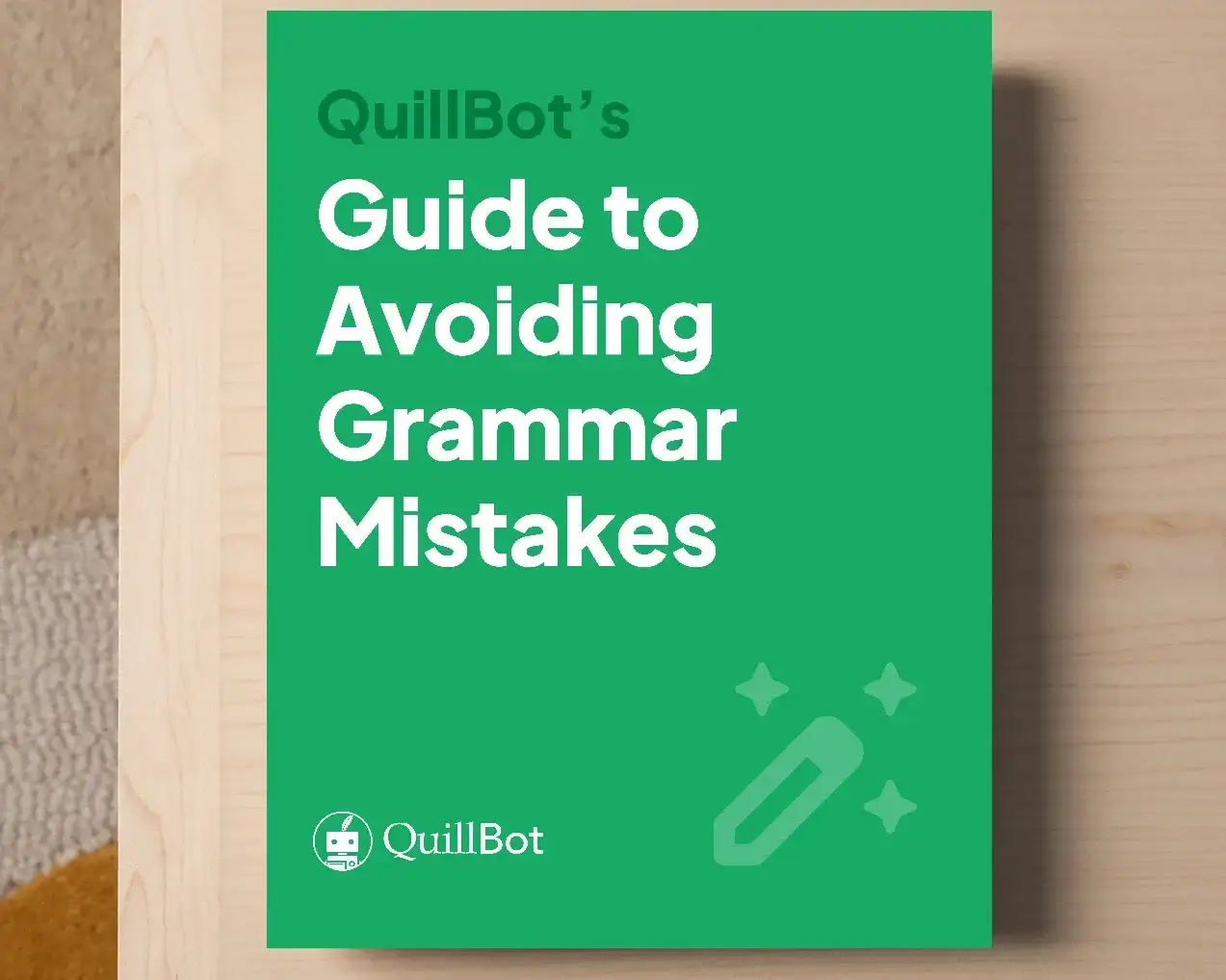The correct spelling is that’s not fair because the adjective meaning “reasonable/correct” is spelled “f-a-i-r” (not “f-a-r-e”).
Deciding if the right spelling is fare or fair can be difficult as they are pronounced in the same way. Using QuillBot’s free Grammar Checker will help you to avoid making errors with homophones such as these.
Read this FAQ: Is it that’s not fair or fare?
The correct spelling is how did you fare? because the verb meaning “get along” is spelled “f-a-r-e” (not “f-a-i-r”).
Knowing whether to spell it fare or fair can be tricky as they are pronounced in the same way. Using QuillBot’s free Grammar Checker will help you to avoid spelling errors with homophones such as these.
Read this FAQ: Is it how did you fare or fair?
Fair use refers to copyright law. Generally, you are not allowed to use material protected by copyright (e.g., video from a film or text from a book) without permission. However, under American copyright law, you may be allowed to use it without permission for certain purposes if you use it in a reasonable way. This is called “fair use” of the copyright-protected material. For instance, a teacher using a short video clip to illustrate something related to their lesson is likely to be considered fair use.
On a related note, it matters if you spell it fare or fair, as these words have different meanings.
QuillBot’s free Grammar Checker will help you to avoid spelling errors with homophones such as “fare” and “fair.”
Read this FAQ: What does fair use mean?
“Shed some light” means “to help explain” or “to clarify.”
“Shed some light on” is a phrasal verb and means the same as “throw some light on” and “cast some light on.” You can also use these phrasal verbs without “some.”
For example:
- Her diagnosis shed some light on why she’s been feeling ill lately.
- No one could throw some light on how the phenomenon happened.
- The new approach casts light on what went wrong.
A Grammar Check can make sure you use phrases like “shed some light” correctly.
Read this FAQ: What’s the meaning of shed some light?
If you’re referring to food that’s lower in calories, fat, or sugar than other alternatives, you can say “lite bites.” “Lite” is used to refer to the diet versions of a food or drink.
You could also say “light bites,” as “light” means “not heavy or dense.”
In this context, the choice is up to you. “Lite” is more often used in marketing and advertising language, while “light” is a more neutral word.
If you’re having trouble choosing between lite and light, a QuillBot Grammar Check can help.
Read this FAQ: Is it lite bites or light bites?
For weight, use “light.” “Light” means “not heavy.” For example, “This box is big but very light.”
“Lite” means the diet version of something (e.g., “lite soda”) or the less complex version of something (e.g., “the lite edition of the software”). It should only be used in informal writing.
A QuillBot Grammar Check can help you decide when to use lite or light.
Read this FAQ: Is it lite or light for weight?
The compound noun website is typically written as one word. You can write it as web site (two words), but this is much less common, so it is best to write it as one word in formal writing such as academic writing.
On a related note, it matters if you spell it site or sight, because these two words are homophones with different meanings.
Use QuillBot’s free Grammar Checker to help you avoid mixing up homophones such as “cite,” “site,” and “sight.”
Read this FAQ: Is it website or web site?
The correct spelling is sightseeing. It means going to the places that tourists like to visit in a particular region or city (e.g., “I didn’t have much time for sightseeing on my business trip to New York”).
Deciding if the correct spelling is site or sight can be tricky because these two words are homophones.
Have you tried QuillBot’s free Grammar Checker? It can help you avoid making errors with homophones such as “sight,” “site,” and “cite” in your writing.
Read this FAQ: Is it sightseeing or siteseeing?
The phrases on site and on sight have different meanings.
“On site” is an adverbial phrase meaning “at the location” (e.g., “I would like to meet you on site, so I can look at the construction work in person”) or an adjective meaning “at the location” (e.g., “We would like to carry out an on-site inspection, so we can look at the construction work”).
“On sight” is an adverbial phrase meaning “as soon as you see” something (e.g., “The soldiers were ordered to shoot anyone who entered the zone on sight”).
Knowing if you should spell it site or sight can be difficult because they are homophones.
Why not use QuillBot’s free Grammar Checker to help you avoid making errors with homophones such as “sight,” “site,” and “cite.”
Read this FAQ: Is it on sight or on site?
The correct spelling is gunsight (written as one word) or sight. A “gunsight” or the “sight” of a gun is a device attached to a gun that you look through to help you aim accurately.
Deciding whether to spell it site or sight is tricky because they are homophones.
Using QuillBot’s free Grammar Checker will help you avoid spelling errors with homophones such as “site,” “sight,” and “cite.”
Read this FAQ: Is it gun site or sight?
